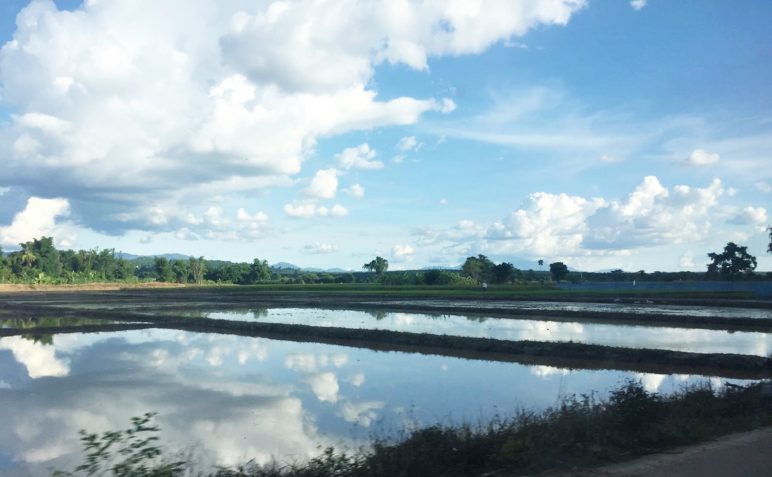[ ‘SHARE’ Mar-Apr 2017 ] BACK TO THE BIBLE
Author: Dr. Bernard Wong (Assistant Professor (Theological Studies) & Associate Dean, China Graduate School of Theology; CEDAR Board Member)
“No one can serve two masters. Either you will hate the one and love the other, or you will be devoted to the one and despise the other. You cannot serve both God and money.
“Therefore I tell you, do not worry about your life, what you will eat or drink; or about your body, what you will wear. Is not life more than food, and the body more than clothes? Look at the birds of the air; they do not sow or reap or store away in barns, and yet your heavenly Father feeds them. Are you not much more valuable than they? Can any one of you by worrying add a single hour to your life? And why do you worry about clothes? See how the flowers of the field grow. They do not labor or spin. Yet I tell you that not even Solomon in all his splendor was dressed like one of these. If that is how God clothes the grass of the field, which is here today and tomorrow is thrown into the fire, will he not much more clothe you—you of little faith? So do not worry, saying, ‘What shall we eat?’ or ‘What shall we drink?’ or ‘What shall we wear?’ For the pagans run after all these things, and your heavenly Father knows that you need them. But seek first his kingdom and his righteousness, and all these things will be given to you as well. Therefore do not worry about tomorrow, for tomorrow will worry about itself. Each day has enough trouble of its own.” (Matthew 6:24-34)
Jesus taught us to not worry over what to eat, drink, and wear, as God knows and will provide for our needs. He reminded us of our worth compared to birds of the air and flowers of the field, where we shall not have any doubts in God’s provision when even the birds and flowers were fed and clothed. He further reminded us that to worry and work solely for monetary gains is in fact serving money over God.
This passage not only taught us the right attitude towards work and labor, but also recall in us our relationship with the God-created world we live in. Birds “do not sow or reap or store away in barns,” but their needs are satisfied; flowers “do not labor or spin,” but they are as beautiful as they could be. They are the perfect example of a worry-less life and it reminded us that our basic needs could all be satisfied from the creation itself, and that the beauty of life is not entirely based on self-development.
However, people nowadays seem to go further away from believing that the creation has got us covered. We not only labored and spun, but we have also developed a bunch of technologies and products, thinking they would improve the quality of our lives, make us more beautiful, and make us happier. We started to “improve” our environment as if it was not satisfactory or even downright unlivable. Now we are only comfortable and happy when separated from the nature and holding our high-tech gadgets; the “normal” people now are those who constantly live in buildings and malls, breathe nothing but air-cons, bathe in UV tanning beds, and play with their cellphones. Even when we go on a trip to get in touch with the nature, we must bring with us all the man-made products like sun-blocks, insect sprays, tiny electric fans, cellphones, etc., before we could feel safe. We also despise playing in our own backyard and would seize every opportunity to go on cross-continental trips—the further from home the merrier. Look how Jesus tells us, “Look at the birds which are satisfied without all the products, and look at the flowers that are so beautiful without moving an inch!”
We have alienated ourselves from the creation and hindered it with our technologies and consumerist lifestyles. The thicker we build the artificial wall with products that makes us forget our nature, the less we feel accommodated by it; the more resources we extract from the nature, the less it become suitable for us to live. The vicious cycle starts when human could no longer live without high-tech products, and our reliance to them has made them our masters, to whom we serve, and to whom we would rely on instead of our creator. The fact is that we worship technologies and products thinking they would give us better lives, but those are the exact things that are destroying our environments and turning us into slaves.
Jesus did not intend for us to completely forego technology and go back to live the life of a caveman. All He did was to remind us that we should learn from the birds and flowers which could be satisfied and be beautiful without air-con, sun blocks, cellphones, shopping, and traveling, who already got what they need from their environment. Environmental preservation has become a hot topic recently, and Christians are generally called to care for the creation, but I suggest that we could not achieve that unless we are deeply motivated by how we are first cared for by the creation.





